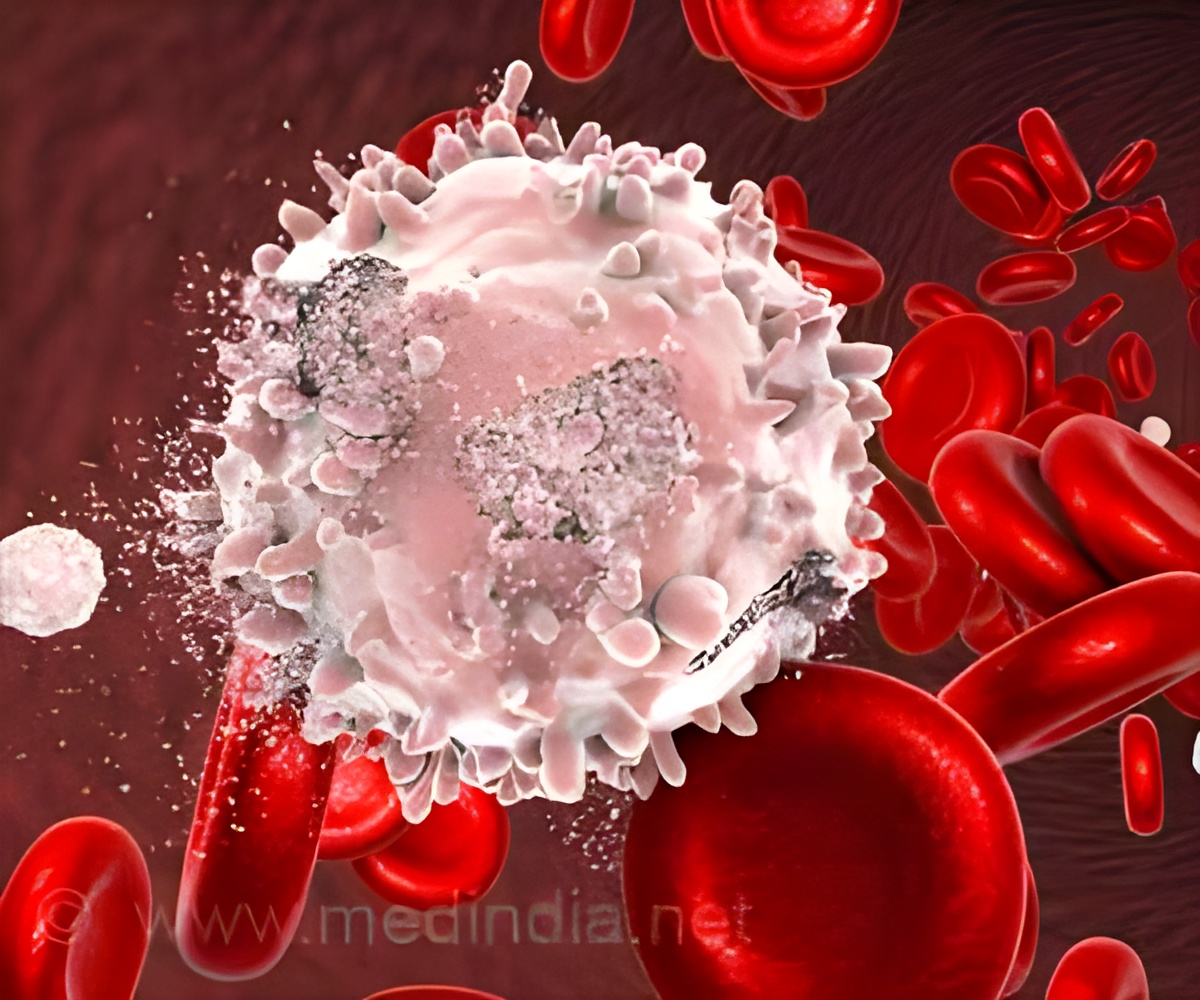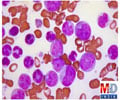By using proteome and genetic analysis, scientists have discovered a new subtype of acute myeloid leukemia (AML).

TOP INSIGHT
Researchers have discovered the first proteomic subtype of an aggressive blood cancer by using mass spectrometry technology.
In a multidisciplinary project, a team of researchers led by Matthias Mann from the Max Planck Institute of Biochemistry as well as Thomas Oellerich and Hubert Serve from the University Hospital Frankfurt, DKTK & DKFZ studied the proteome – i.e. the totality of all proteins – of AML cells. By combining the proteome and genome data, the researchers have identified several AML subgroups with specific biological features. One of the subgroups – the so-called Mito-AML – was only recognisable at the proteome level and had therefore not been discovered before. The new subgroup is characterised by a high number of mitochondrial proteins and an altered mitochondrial metabolism and shows clinical resistance to chemotherapy.
Possible approach for new therapies
Since mitochondria are the power plants of cells, the research team further investigated whether the disease-specific metabolic changes in Mito-AML can be therapeutically exploited. In a series of experiments, they found that drugs that interfere with mitochondrial respiration are highly effective in Mito-AML cell cultures and thus might be a more effective therapy compared to traditional chemotherapeutics. These agents include, for example, the drug venetoclax.
In the last decades genomic studies already identified molecular subtypes within the disease thereby opening up a perspective for personalized therapeutic approaches. This has certainly revolutionised the molecular understanding of the disease and laid the groundwork for personalised therapies. Despite these developments, the prognosis for AML remains poor. This highlights the urgent need to better understand the pathologically altered processes during AML and to search for more efficient therapies.
"The discovery of the Mito-AML subset demonstrates the great potential of proteomics technology for identifying clinically relevant biomarkers and drug targets. Our study clearly shows that genomic and proteomic data complement each other, allowing us to elucidate previously undescribed aspects of disease biology and to name innovative treatment approaches," says Matthias Mann. "Our approach led to the discovery of new molecular AML subgroups with clinical relevance. It thus provides a proteomic systematics as a basis for a better molecular understanding and clinical classification of AML," says Thomas Oellerich.
Source-Eurekalert
 MEDINDIA
MEDINDIA




 Email
Email








